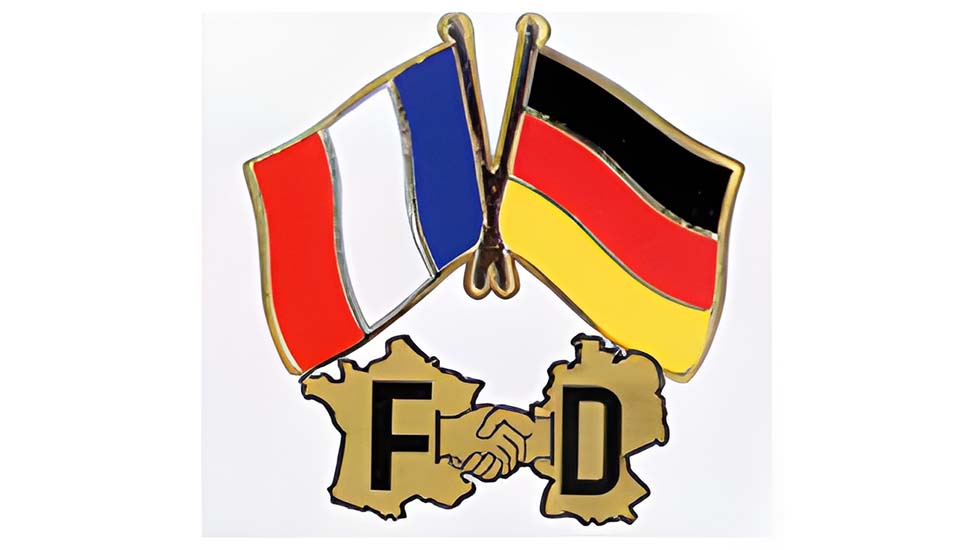The Newsletter n°616 — 10 mars 2014
La Lettre
Nicolas Sarkozy
—
10 March 2014
Financing transport infrastructures
10 March 2014

Ukraine: Europe and Russia?
9 March 2014
Jean-Claude Juncker -elected EPP candidate for the Presidency of the Commission
10 March 2014

New Data on European Political parties (manifestos; candidate appointed for the Commission)
10 March 2014
Just one month before the elections in Hungary, Viktor Orban is running favourite
10 March 2014
ECB: maintains its rates, economic outlook and conference with Mr Draghi
9 March 2014

Report on the Macro-Economic Imbalances by the Commission
9 March 2014
Increase in annual inflation in the OECD zone
9 March 2014
The crisis is not over in Europe according to Christine Lagarde
9 March 2014
Latvia will join the European Stability Mechanism
9 March 2014
Extraordinary European Council on Ukraine: progressive sanctions against Russia
9 March 2014

New European safety rules in airports
9 March 2014

Maritime Strategy
10 March 2014
Strengthening of the principle of equal pay between men and women
10 March 2014
Directive on Posted Workers
10 March 2014

What kind of energy policies in 2030?
9 March 2014
Justice/Interior Council Decisions
9 March 2014
Treaty on the arms trade
10 March 2014
Environment: Horizon 2030, GMO and Green Economy
9 March 2014
Conclusions of the Employment Ministers' Meeting
10 March 2014
EU Mobility Partnership/Tunisia
9 March 2014

Iran: C. Ashton cautious about chances of finding an overall agreement
10 March 2014
The group RWE reveals its first net loss in 60 years
9 March 2014

7.6 million foreigners in Germany
10 March 2014
Inauguration of CeBIT
10 March 2014
Cyprus adopts a law on the privatisation of public services
9 March 2014

Resignation of Estonian Prime Minister Andrus Ansip
9 March 2014

Vitaly Klitchko and Petro Poroshenko guests of French President
10 March 2014

Visit by German President Joachim Gauck to Greece
10 March 2014

Meeting between Enda Kenny and German Chancellor Angela Merkel
10 March 2014

International Conference on Libya
9 March 2014

Romanian Parliament provides its confidence to the new government
9 March 2014

Long Term British Economic Plan
10 March 2014

NATO supporting the Ukrainian revolution
10 March 2014

18 OSCE countries in an observers' mission
10 March 2014
European aid to Ukraine totals 11 billion €
9 March 2014
The Russian intervention in Crimea brings back bad memories in Central Europe
10 March 2014
Referendum on 16th March in Crimea
10 March 2014
Euro zone GDP rises
9 March 2014

EU 40% of female higher education graduates in comparison with 32% of men
9 March 2014
Europeans and the Common Agricultural Policy
10 March 2014

One woman in three victim of violence in Europe
9 March 2014

"New Power, new responsibility"
9 March 2014
Van Gogh - Artaud, the Man Suicided by Society
9 March 2014

"Emil Nolde" Retrospective in Frankfurt
9 March 2014
"Vikings - Life and Legends" in London
9 March 2014
El Greco tribut in Toledo
10 March 2014
Agenda
les 10th - 13th March
Plenary Session European Parliament (Strasbourg)
10th March
"Employment, social policy, healthcare and consumer" Council (EPSCO) (Brussels)
10th March
Eurogroup (Brussels)
11th March
Economic and Financial Affairs Council (Brussels)
14th March
"Transport, Telecommunications, Energy" (TTE)- Transport Council (Brussels)
17th March
Foreign Affairs Council (Brussels)
European Women Leading the Way
Should we be concerned about European competitiveness?
The European Space Context (after the ESA Ministerial Council meeting in 2025)
In support of European regulation that is compatible with growth
Democratic resilience in Europe in a polarised world
The Editors of the Newsletter :
Inga Groth, Pauline Massis Desmarest, Charles de Marcilly ,Claire Darmé, Raphaël Frison, Salomé Larcher, Jelena Isailovic
N°ISSN : 2729-6482
Editor-in-Chief :
Charles de Marcilly / Pauline Massis Desmarest
Director of Publication :
Pascale Joannin
Any questions or suggestions?
Contact Us!







